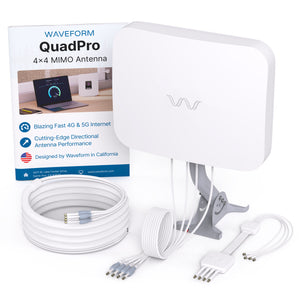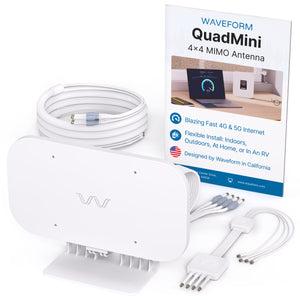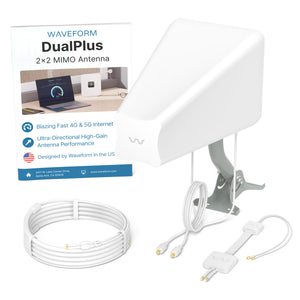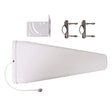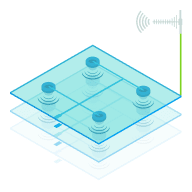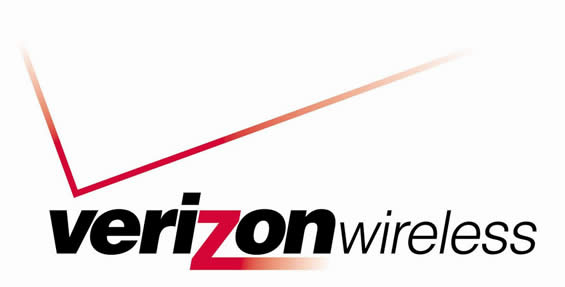 Last week, the FCC ruled that Verizon Wireless can’t keep its customers from downloading tethering apps, or apps that let you share your phone’s internet connection like a hotspot with other devices. It’s great news, but does it actually affect you, even if you’re not a Verizon Wireless customer? Let’s take a look.
Last week, the FCC ruled that Verizon Wireless can’t keep its customers from downloading tethering apps, or apps that let you share your phone’s internet connection like a hotspot with other devices. It’s great news, but does it actually affect you, even if you’re not a Verizon Wireless customer? Let’s take a look.
What Happened?
If you’re a Verizon Wireless customer, you probably know that for a while you couldn’t find tethering apps in Google Play from your phone. Verizon had pressured Google to block access to tethering apps from Verizon Wireless devices, so if you wanted to install them you had to sideload them yourself. When the FCC got word of this (via a complaint filed by Free Press), they started an investigation.
Verizon’s 4G LTE network is built on top of wireless bandwidth that Verizon bought from the government (specifically, the C Block of 700 MHz spectrum) a long time ago. That purchase came with a restriction called the Open Access Rule, which says anyone using it to provide service “shall not deny, limit, or restrict the ability of their customers to use the devices and applications of their choice on the licensee’s C Block network.” That means as long as you’re a paying customer and using their equipment, Verizon can’t keep you from spreading the wireless love to your iPad, your laptop, or any other device you own.
Verizon contested the issue at first, but after the better part of a year, they relented, settling on a $1.25 million fine and agreeing to stop blocking tethering apps, among other penalties. So now Verizon customers can download tethering apps with impunity—but there’s more to the story.
I’m On Verizon, What Does This Mean to Me?
If you’re a Verizon customer, this is a bigger deal to you, and the news isn’t all good. Here’s what we mean:
-
You can download any tethering app you want now. Congratulations! Our favorite tethering apps for Android like PDANet. Wireless Tether, and EasyTether are all available on Google Play, and you can tether for free all day long as long as you don’t go over your data cap (unless you have a grandfathered Unlimited plan, more on that in a second.)
-
Customers with non-unlimited plans can tether for free. If you use Android’s built-in tethering or a third-party tethering app like the ones we mentioned, you’re in the clear—just don’t go over your data cap. If you have a new “Share Everything” plan, tethering is rolled into the base price of your plan. The upside is you can use whatever app you want. The downside is you’re essentially still paying for tethering in some fashion, it’s just obfuscated. If you already pay for Verizon’s Mobile Broadband Connect service or use Verizon’s own app to tether, Verizon says the extra bandwidth their $20/mo plan offers is worth paying for, but that’s up to you.
-
Current customers with grandfathered unlimited data plans still have to pay. Unfortunately, if you want to tether with your unlimited plan, you have to either upgrade your plan to one of the new, Share Everything plans (which include tethering), or pony up $20/mo for Verizon’s “Mobile Broadband Connect” service. You can still tether off the books and hope you don’t get caught, but if they catch you, Verizon will either sign you up for Mobile Broadband Connect, put you on a Share Everything plan, or terminate your contract. Sorry.
-
3G customers can tether for free, too. Even though the ruling applies to the spectrum Verizon purchased for its 4G network, 3G smartphone owners can tether for free too. Verizon doesn’t want the overhead of applying one policy to 4G users and another to 3G users, so they’re making it an across-the-board thing. Grab your favorite app and go!
-
This means nothing for the Verizon iPhone. Sorry iPhone users—even though Verizon’s policy applies to 3G phones, all they have to do is not block tethering apps. The restriction on tethering apps in the iTunes Store is Apple’s decision, not Verizon’s, so until that changes, you’re stuck jailbreaking and finding your own app, either through Cydia, or buying our favorite, PDANet.
I’m Not on Verizon, What Does This Mean to Me?
If you heard the news and thought that maybe this meant your carrier will have to make it easy for you to tether, don’t hold your breath. However, there are some upsides:
-
AT&T (and soon, other carriers) now include tethering as part of their wireless plans’ base price. The folks at ExtremeTech point out that AT&T has already very quietly changed their plans to include tethering in the base price for new customers. Other carriers will likely follow suit, since it gets them out of the business of hunting people down for tethering, and ends thecat and mouse tethering game many of us play, trying to sneak it in without getting caught. Photo by Matthew Berggren.
-
Other carriers will think twice about hiding or removing built-in tethering features. This especially applies to Android devices. Carriers work pretty hard with OEMs to try and obscure Android’s built-in tethering tools, or pre-load Android devices with a carrier’s specific tethering app that prompts you to sign up for an additional charge before you can use your phone as a mobile hotspot, and while they won’t be required to stop, there’s a strong disincentive now for doing it.
The Bottom Line: A Mixed Bag that Represents a Bigger Change
At the end of the day, it may seem like not much has changed, especially for non-Verizon customers—but in a few years, we’ll likely look back on this as a shift in the industry—at least in the United States—away from charging extra for tethering and letting you use your smartphone the way it was designed (and the way smartphone users abroad are happy to tell you they already can). Bonus, as carriers look to buy up more spectrum to meet our growing mobile data needs, they’ll probably all have to comply with the Open Access Rule, too. Granted, even those people who don’t tether will wind up paying for it as part of their plan, but anyone who wants to will be able to, whenever they want to, without extra fees or worrying they’ll get caught.
Source: http://lifehacker.com/5933152/the-right-to-tether-what-the-verizonfcc-settlement-means-to-you























